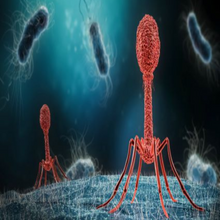The Microbiology Society responds to the government inquiry on the antimicrobial potential of bacteriophages
31 January 2023

The Microbiology Society has coordinated a response to a call for evidence launched by the House of Commons Science and Technology Committee on the antimicrobial potential of bacteriophages.
The threat of antimicrobial resistance (AMR) has now been recognised globally. It is estimated that 10 million people a year will die due to AMR by 2050 if no urgent action is taken. Every time an antibiotic is prescribed, the risk of AMR arising and drug-resistant infections emerging increases. This complex global issue can be tackled partly through finding alternative treatments to lower our reliance on antimicrobial drugs.
Bacteriophages are viruses that infect and destroy bacteria without damaging human cells, so have the potential to act as an alternative treatment for patients with bacterial infections. You can find out more about bacteriophages here.
This inquiry seeks to establish the strengths and weaknesses of bacteriophage therapy and identify opportunities for the UK government to adapt and improve existing policies. The Microbiology Society has members working in this area, and their knowledge can be harnessed to contribute to national policy.
In our response, we give an overview of the state of bacteriophage research, assess the strengths and weaknesses of bacteriophage therapy, consider the regulatory, clinical and academic barriers to the use of bacteriophages and highlight opportunities for the government to support the bacteriophage research community and improve the route to bacteriophage therapy for patients and clinicians in the UK.
You can read our full response to the call for evidence here.
Read full consultation
We greatly appreciate this opportunity to contribute to scientific policy and will continue to seek opportunities to represent our members working in this area.
Image: iStock.
